|
|
Herbal Remedies
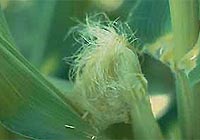 |
Corn Silk is a sweet, soothing and cooling
herb with diuretic properties, stimulates bile, helps
prostatitis, enuresis in children, prevents the formation
of stones in the kidneys, clears bladder and urinary tract
infection, and lowers blood sugar levels.
|
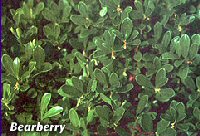 |
Bearberry (Arctostaphylos uva-ursi)
has been used for diarrhea and dysentery and for bladder
infections and other afflictions of the urinary tract.
Helps Cystitis,Nephritis and ureteralgia.
|
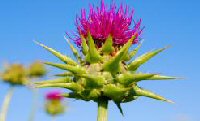 |
Milk Thistle has been used for the treatment
of liver disease, has been shown to alter the cell structure
of the outer liver membrane which prevents toxic chemicals
from entering and stimulates the liver's own capacity
to generate new cells.
|
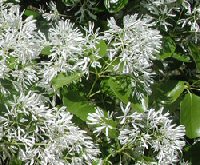 |
Fringe Tree Bark (Chionanthus virginicus)
Good for the treatment of gall-bladder inflammation and
a valuable part of treating gall-stones. It is a remedy
that will aid the liver in general and as such it is often
used as part of a wider treatment for the whole body.
It is also useful as a gentle and effective laxative.
|
 |
Echinacea increases bodily resistance
to infection, used to prevent and treat colds and to help
heal infections. Echinacea enhances the particle ingestion
capacity of white blood cells and other specialized immune
system cells, thus increasing their ability to attack
foreign invaders, such as cold or flu viruses.
|
 |
Astragalus has been used to invigorate
vital energy and in prescriptions for shortness of breath,
general weakness, and lack of appetite; also as a diuretic,
and for the treatment of colds, flu, stomach ulcers, and
diabetes. It is widely used in modern herbal practice
in China.
|
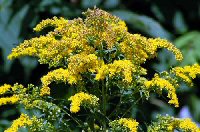 |
Goldenrod is an aquaretic agent (promotes
the loss of water from the body) most frequently used
to treat urinary tract inflammation and to prevent the
development of kidney stones, it is astringent and diuretic.
|
 |
Black Elder Root
|
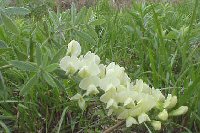 |
Wild Indigo is purgative, emetic, stimulant,
astringent, and antiseptic, principally used for its antiseptic
qualities.
|
 |
Hydrangea's greatest use is in the treatment
of an inflamed or enlarged prostate gland although it
is also used for urinary stones or gravel.
Diuretic, antilithic, kidney stimulant (nephritic), laxative.
|
 |
Saw palmetto is an effective treatment
for the urinary difficulties that develop as a result
of Benign Prostatic Hypertrophy (BPH), or prostate enlargement.
It is commonly prescribed in Europe for treatment of BPH,
and has been shown to be as effective as the drug finasteride
(Proscar) in promoting normal urination.
|
Herbs the viable alternative to antibiotics?
Antibiotic resistance now 'global threat',
WHO warns
By Pippa Stephens
Health reporter, BBC News
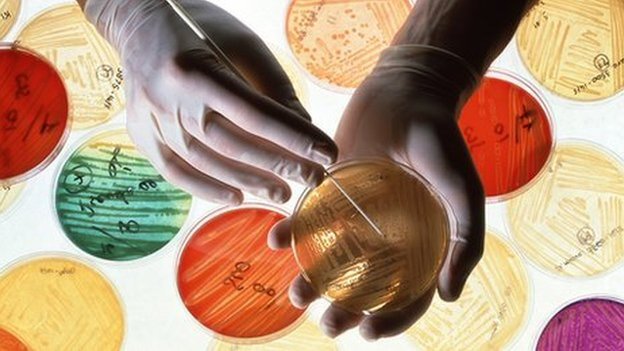
WHO called for more preventative measures against infection
Resistance to antibiotics
poses a "major global threat" to public health, says
a new report by the World Health Organization (WHO).
It analysed data from 114 countries and said resistance was
happening now "in every region of the world".
It described a "post-antibiotic era", where people
die from simple infections that have been treatable for decades.
There were likely to be "devastating" implications
unless "significant" action was taken urgently, it
added.
The report focused on seven different bacteria responsible for
common serious diseases such as pneumonia, diarrhoea and blood
infections.
It suggested two key antibiotics no longer work in more than
half of people being treated in some countries.
One of them - carbapenem - is a so-called "last-resort"
drug used to treat people with life-threatening infections such
as pneumonia, bloodstream infections, and infections in newborns,
caused by the bacteria K.pneumoniae.
Bacteria naturally mutate to eventually become immune to antibiotics,
but the misuse of these drugs - such as doctors over-prescribing
them and patients failing to finish courses - means it is happening
much faster than expected.
The WHO says more new antibiotics need to be developed, while
governments and individuals should take steps to slow the process
of growing resistance.
In its report, it said resistance to antibiotics for E.coli
urinary tract infections had increased from "virtually
zero" in the 1980s to being ineffective in more than half
of cases today.
In some countries, it said, resistance to antibiotics used to
treat the bacteria "would not work in more than half of
people treated".
Gonorrhoea treatment 'failure'
Dr Keiji Fukuda, assistant director-general at WHO, said: "Without
urgent, coordinated action by many stakeholders, the world is
headed for a post-antibiotic era, in which common infections
and minor injuries which have been treatable for decades can
once again kill."
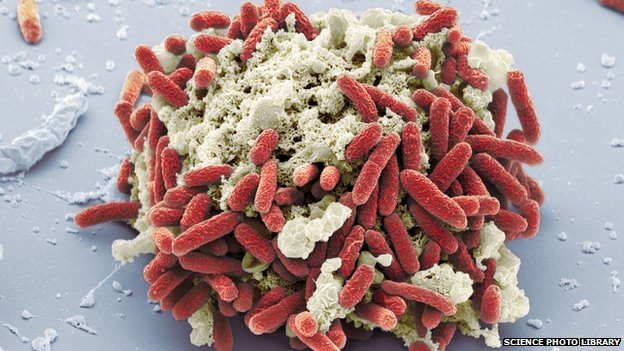
Urinary tract infections caused by E.coli bacteria are becoming
harder to treat
He said effective antibiotics had been one of the "pillars"
to help people live longer, healthier lives, and benefit from
modern medicine.
"Unless we take significant actions to improve efforts
to prevent infections and also change how we produce, prescribe
and use antibiotics, the world will lose more and more of these
global public health goods and the implications will be devastating,"
Dr Fukuda added.
The report also found last-resort treatment for gonorrhoea,
a sexually-transmitted infection which can cause infertility,
had "failed" in the UK.
It was the same in Austria, Australia, Canada, France, Japan,
Norway, South Africa, Slovenia and Sweden, it said.
More than a million people are infected with gonorrhoea across
the world every day, the organisation said.
'Wake-up call'
The report called for better hygiene, access to clean water,
infection control in healthcare facilities, and vaccination
to reduce the need for antibiotics.
Last year, the chief medical officer for England, Prof Dame
Sally Davies, said the rise in drug-resistant infections was
comparable to the threat of global warming.
Dr Jennifer Cohn, medical director of Medecins sans Frontiers'
Access Campaign, said: "We see horrendous rates of antibiotic
resistance wherever we look in our field operations, including
children admitted to nutritional centres in Niger, and people
in our surgical and trauma units in Syria.
"Ultimately, WHO's report should be a wake-up call to governments
to introduce incentives for industry to develop new, affordable
antibiotics that do not rely patents and high prices and are
adapted to the needs of developing countries."
She added: "What we urgently need is a solid global plan
of action which provides for the rational use of antibiotics
so quality-assured antibiotics reach those who need them, but
are not overused or priced beyond reach."
Professor Nigel Brown, president of the UK Society for General
Microbiology, said it was vital microbiologists and other researchers
worked together to develop new approaches to tackle antimicrobial
resistance.
"These approaches will include new antibiotics, but should
also include studies to develop new rapid-diagnostic devices,
fundamental research to understand how microbes become resistant
to drugs, and how human behaviour influences the spread of resistance."


A
and P Business Solutions Ltd - Independent Distributors
for the Utility Warehouse Discount Club, save money on your telephone
calls, broadband, gas, electricity, mobile phones and shopping.
Interested
in an extra income
part-time, full-time, any-time
Click
here |
|


